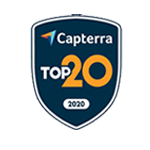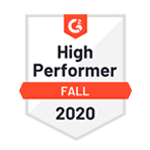
Talent Management Software refers to a set of tools and systems that companies use to recruit, hire, onboard, and manage employees. These systems often include features such as applicant tracking, performance evaluations, succession planning, and employee development. The goal of talent management software is to streamline and improve the processes for managing and developing an organization’s human capital.
Key Elements of Talent Management Software
The most important thing about management software is its ability to effectively and efficiently manage an organization’s human capital, including recruiting, hiring, performance , and employee development. Talent Management Software improves employee engagement, retention, and productivity, which can ultimately lead to improved business outcomes. Talent management software typically includes several key elements, which include:
- Recruiting and hiring: Allows companies to post job openings, receive and track job applications, and schedule interviews.
- Onboarding: Helps to automate the process of getting new hires acclimated to the company, including paperwork and training.
- Performance management: Enables managers to track employee performance, set goals and give feedback.
- Learning management: Aids companies to manage employee training and development, including tracking progress and measuring the impact of training programs.
- Succession planning: Supports firms to identify and develop potential leaders for key positions within the organization.
- Compensation management: Manages employee compensation and benefits, including tracking pay grades and performance-based incentives.
- Analytics and reporting: Allows organizations to track key talent metrics, such as employee turnover, time to fill a position, and the cost of recruitment.
- Employee self-service: Provides employees with access to their personal information, benefits, and performance reviews.
- Employee engagement: Helps organizations to measure employee engagement, as well as track and respond to employee feedback.
- Mobile access: Eases employees to access the system using mobile devices.
Talent Management Software for business
Companies of all sizes and industries manage employees’ software aka management software for business. The software is designed to help organizations attract, retain, and develop top talent by streamlining and automating various HR processes.
Some of the main users of this talent management software:
Human Resources (HR) departments use the software to manage recruitment, onboarding, performance evaluations, and employee development.
Managers and supervisors use the software to track employee performance, set goals, and provide feedback.
Recruiting firms use the software to manage resumes, schedule interviews, and onboard new hires.
Employees use the software to access their personal information, view their performance evaluations, and apply for internal job openings.
The main reasons organizations use talent management software are to:
- Improve the recruitment process and attract top talent.
- Streamline and automate HR processes, such as onboarding, performance evaluations, and employee development.
- Increase employee engagement and retention.
- Improve workforce planning and succession management.
- Enhance compliance with labor laws and regulations.
All in all, Talent management software helps organizations make more data-driven decisions and manage their human capital more effectively.
Challenges in Using Talent Management Software?
The level of difficulty in using talent management software can vary depending on the specific software being used and the user’s prior experience with similar types of technology. In general, most talent management software is designed to be user-friendly and easy to navigate, but it may take some time to become familiar with all of the features and functions. Training and support resources are usually provided by the software vendor to help users learn how to use the software effectively.
There are several challenges that organizations may face when using talent management software, including:
Integration with existing systems: Talent management software may need to integrate with other systems such as HRIS, payroll, and time and attendance systems.
Data accuracy and completeness: Ensuring that data entered into the system is accurate and complete is important for the software to function properly.
User adoption and training: Employees may be resistant to using new software and may require training to use it effectively.
Cost: Talent management software can be expensive to purchase and maintain.
Customization: Some software may not be able to fully meet an organization’s specific needs without customization.
Security and Privacy: Talent management software stores sensitive information, so the software must be secure and protected against unauthorized access.
Scalability: As an organization grows, the software must be able to scale to meet the increasing demand.
Support and Maintenance: Availability of support and maintenance is crucial for the smooth operation of the software.
Data privacy laws and regulations: Talent management software must comply with data privacy laws and regulations, such as GDPR and CCPA.
Future of Talent Management Software
Talent management software is likely to remain relevant in the future as it can help organizations to effectively manage and develop their human capital. The software can provide a range of tools and capabilities for recruiting, hiring, onboarding, performance management, and other aspects of talent management. We have integrated a powerful scraping API into our recruiting system, providing us with real-time access to a wealth of candidate data and enabling us to make more informed hiring decisions.
These tools can help organizations to improve their ability to attract, retain, and develop top talent, which is a key driver of long-term success in today’s increasingly competitive global business environment. As technology continues to evolve and business operations change, Talent management software vendors will also continue to innovate and update their offerings to stay relevant and meet the changing needs of organizations.
Relying solely on talent management software is not recommended. While talent management software can be a useful tool for managing employee performance, tracking employee development, and identifying potential leaders, it is important to remember that the software is just one tool among many in an organization’s human resources toolkit.
Talent management software, no matter how advanced, will not be able to replace the expertise and judgment of human resources professionals. Additionally, relying solely on software may lead to oversights or biases in the selection and development of employees. It can also lead to a lack of accountability and transparency.
It is important to use Talent Management Software in conjunction with other human resources strategies and tools, such as regular performance evaluations, employee development plans, and effective communication channels. In this way, the software can be used to complement and support the organization’s overall talent management strategy. So don’t wait any further, and check out our recruiting software.


























